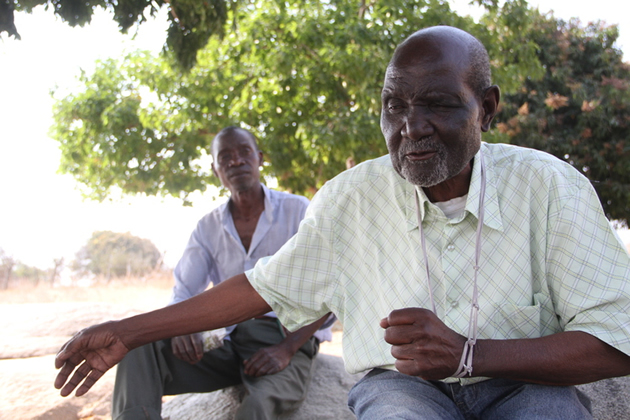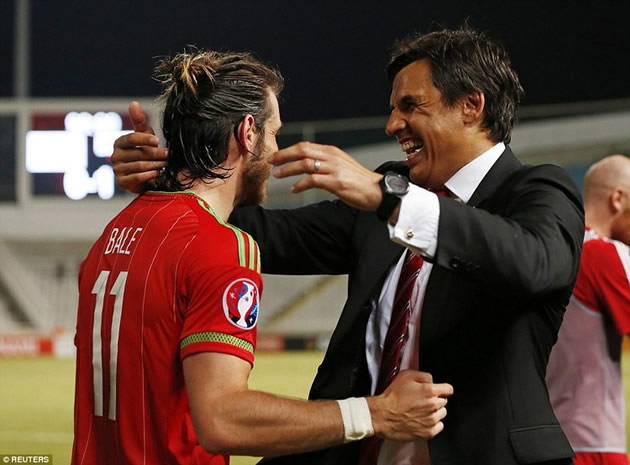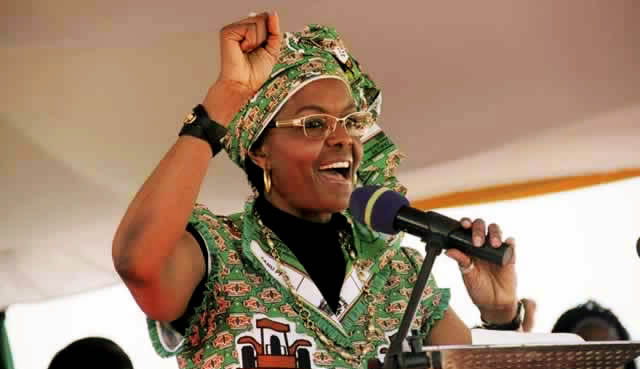Njatara: Origins of armed resistance

Stanely Mushava Features Correspondent
Njatara — one of the earliest combat zones of the First Chimurenga — merits classical distinction as a cradle of African resistance to imperialism. The field of conflict was renamed Mhondoro, a name which has held to this day, after the natives fought like “possessed lions” against displacement by
British settlers.
The talismanic figures of Chindunduma (the 1896-1897 Ndebele-Shona revolt) in Njatara were Chief Chinengundu, so named because he sported dreadlocks, and his daring commander and brother, Chifamba.
The star-crossed militant fraternity fell to the settler forces, but along with Kaguvi, Mapondera, Nehanda and others, the brothers’ example torched the bonfire of defiance and resistance which ultimately took out the colonial system.
Chinengundu fell in the line of imperialist fire in 1896.
He was posthumously decapitated and his head taken away with the spoils of war by Rhodesian captors as a trophy of the British conquest.
The head was placed at the Natural History Museum in Bulawayo, brought to Harare’s Museum of Human Science and later flown to Britain to be displayed as an article of the empire’s dominion.
That victory was short-lived.
The empire crumbled in the revolutionary bonfire, but decades have elapsed before the repatriation of the remains of the First Chimurenga heroes.
Herald Features spoke to descendants of Chief Chinengundu and Chifamba in the wake of the announcement by President Mugabe that plans are afoot to facilitate a decent resting place for the heroes of Chindunduma.
Gideon Chinengundu (61), a descendant of the fallen Chimurenga hero, welcomes as long overdue the efforts by Government to bring back the remains of the architects of armed resistance.
“The repatriation of Chinengundu and others for a decent burial in their homeland will be a logical follow-up to the Independence of which he was an architect,” said Chinengundu .
“The remains of First Chimurenga heroes were held by the colonialists as relics of their victory. When we won back our freedom from their yoke, it was fitting that we also reclaim our dignity.
“As long as the remains of our ancestors are on display in a foreign land, we are allowing foreigners to mock what they stood for and to celebrate conquest over them,” he said.
Chinengundu hinted that the holding of the remains by a British museum was an indicting symbol of the failure by our people to redeem their history from imperialist distortion.
Bornwell Chifamba (79), a descendant of the legendary First Chimurenga commander, walked Herald Features down details of the conflict.
“It will sound incredible but that is how the story was handed down to us. Chifamba was a fearless warrior who would dare the white settlers to combat,” Chifamba said.
“When the whites came against his forces, he would spray a ground herb called ‘ndudzo’ in their direction and they would all fall down into forceful slumber. While they were all down, Chifamba and his men would take away all their weapons.”
Asked why the “ndudzo” only immobilised the whites, but not Chifamba and his men who were within equal proximity, the descendant asked the rep: “You tell me first why the barman does not get drunk? This was Chifamba’s own device, so why would it work against him?”
“Chifamba would then violently blow his ‘tsuri’ (whistle), summoning the enemy forces to their feet for combat. The disarmed and drowsy whites would obviously be no match for Chifamba and his men,” Chifamba continued.
“He would take them out and spare only one of them whom he would send as a messenger to tell other settlers that their soldiers had all been decimated.
“So that became the routine. Each time the settlers came against Chifamba, they would be mindful of the fate of their brothers and would fall in similar fashion,” said Chifamba .
“Sometimes, he dared the settler forces without using ‘ndudzo’ against them. Such battles were more fiercely contested and casualties would mount on both sides, although the Njatara army always had the upper hand, while Chifamba was in charge,” he said.
“The commander would conceal himself in his special trench and the whites could never locate it. The bullets were just coming their way and they had no idea what was taking them out. However, Chifamba’s feats were brought to an end when he was sold out by one of his own soldiers.
“He was in his trench as usual, preparing for conflict, when the enemy forces came and shot him on a tip-off from his betrayer. Chifamba knew that the bullet wound would be his undoing and escaped to bid his brother Chinengundu farewell.
“He told the chief ‘They have killed me. It is all over’ and ran off into the wild. People knew that he had perished but no one could identify his corpse and to date no one knows where he died.
“Chinengundu saw that his pillar of resistance had been dislodged. Chifamba had been an integral figure in the conflict and Chinengundu feared that he could not go it alone. He knew that white soldiers were coming for him and took his own life,” Chifamba said.
The settler forces decapitated Chinengundu in full view of his people to send a clear message that the architects of the resistance had been incapacitated.
“It was a symbolic act,” Chifamba said.
“They were saying ‘Look, we have defeated you. This man emboldened you to fight against us but now we have his head. Let us see if he can lead you’.”
Bothwell Chifamba (36) told The Herald that it was the Chinengundu family’s right to have a role in the repatriation exercise.
“It is Chinengundu’s birthright to be laid to rest in the land of his fathers instead of having his remains scattered among foreigners,” the younger Chifamba said.
“It is unfair to have streets named in honour of Second Chimurenga and a few pre-eminent First Chimurenga heroes alone, while we forget some of the heroes who first kindled the spirit of freedom,” he said.
“We cannot afford such short memory. Our schools and streets must be renamed after these heroes.
Chifamba also lamented that the First Chimurenga cemetery in Mhondoro no longer appears to be a site of history as most people trespassed it by cutting wood and herding cattle there.
“People are now doing ‘bindawapinda’ in the area. You cannot tell the difference between the resting place of the heroes and a play centre. Yet in other nations we have monuments to heroes of elapsed centuries.
“We appeal to the museums to ensure that such places of historical significance be protected so that we will not be seen to be in danger of losing our history as a people,” he said.
The elder Chifamba said the onslaught of moral decadence in the country had everything to do with disregard for indigenous history.
“Like everyone else, ancestors were not perfect but if we god back to their annals, there are many positive values we can redeem for our children. The rate of divorces and nature of diseases we see today were unheard of during the time of our ancestors.
“But no one seems to bother anymore who our fathers were, how they lived and what values they propagated,” said Chifamba .
Independence was an occasion for Zimbabwe to rediscover herself culturally and redeem those values which made the forefathers a great people.
President Mugabe said during Heroes’ Day celebrations that remains believed to the skulls of Mbuya Nehanda, Sekuru Kaguvi, Chingaira Makoni, Chiwashira, Mapondera and Mashonganyika are on display in the British History Museum.
Feedback [email protected]








Comments